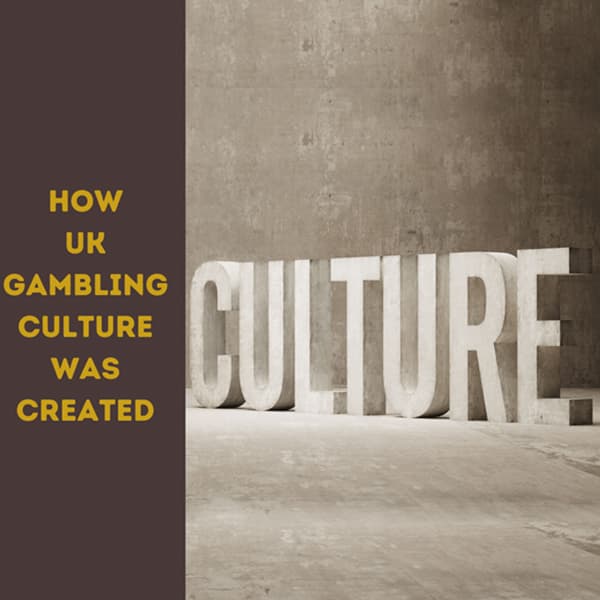Gambling has become a popular pastime worldwide, especially in the UK, where it is governed by the UK Gambling Commission (UKGC). According to stats, about 24 million adults gamble through online and land-based casinos, sportsbooks and bingo halls. In 2018, the gross gambling revenue was 14 billion, showing how much the industry thrives in the UK.
But gambling was once an illegal activity, and most countries are still making legislative changes to regulate the sector. For our readers and all UK gamblers, a popular blog about ways around GamStop self-exclusion NonGamStopSlots.com decided to prepare this article with an overview of how UK gambling culture came to be. Obviously, the history of gambling in the UK is huge, but here we are going to describe the most notable moments.
Origins of Gambling in Great Britain
Although the Romans are credited with popularizing gambling in the UK, Britons experimented with gambling as a form of entertainment long before the Romans. The first occupants used primitive dice to predict future events, and it wasn’t long before some groups found out they could use dice for entertainment and fun.
When the Romans arrived, dice was finally stripped from the divine constructs and became solely for leisure. Soon, the game of craps was born. The Romans became powerful through wars and commercial exploits, and their influence grew, resulting in cultural exchanges and imported board games. This coincided with the Roman circus that involved betting on fights between enslaved warriors and beasts.
Gambling In the Middle Ages
Gambling became popular in the Middle Ages and was practised by people of all classes with time restrictions. The nobles splurged resources, trying their luck on horse races, cockfights, chess and other events. Commoners found betting opportunities in local clubs and organized cockfighting events. By 1190, gambling had become so prevalent that King Richard of England introduced the first legislation to govern the activity.
Gambling would soon become a noble’s leisure as the new rule limited bets to at least 20 shillings, about €2,800 at modern value. The church also brandished gambling as a devilish practice, but such efforts didn’t derail the popularity of the activity. The 16th century saw a resurgence of gambling in Britain, primarily among soldiers, until King Henry VII forbade the practice between its ranks.


The Legalization of Gambling in the UK
King Henry VII outlawed gambling during his time, but the activity was still prevalent among the highest court ranks. However, the atmosphere would soon change when Elizabeth I took over as the queen introduced the first lottery to bet on the country’s future. The first state lottery decree was announced in 1527 with 400,000 tickets for sale, each costing 10 shillings (about £500). The winners would receive a payout of £5,000 (about £5million today) as well as tapestries and fine clothing.
Winning ticket holders would also be exempt from arrest for all their crimes, except treason, murder, felonies and piracy. The proceeds from the state lottery would be used to fund the construction of ships and war campaigns. Because of its success, the queen announced subsequent sweepstakes, and commoners began to group to raise the bet required for the investment. With the new publicized gambling and the increasing influence of Britain, the activity continued to thrive until the 1800s. Card games also became common with reducing printing costs, with Brits adopting the French roulette. Gambling was simply unstoppable during this time.
The Birth of Bookies
Betting on horse races was considered a nobility activity banned among commoners. However, British society’s rights started shifting to a better balance among all classes. At first, bettors could only wager on a win or lose outcome, but this changed when Harry Ogden, a Lancastrian gambler, observed that some horses performed better than others. As horse racing in the UK is extremely popular, Ogden decided to offer lower odds for high-performing horses and better odds for the low-performing horses, creating the first bookie. Bettors could now wager more technically, and such was the norm for the following two millennia.
Bookies would sell their odds to bettors in secure places and back-story of pubs to hide from police since betting was still outlawed among commoners. It wasn’t until 1934 when middle-class Liberal reformers began debating against the puritan Labor Party about unjust laws that treated the rich and poor differently. Regulations would soon relax, and working men could now bet on horse, hound, and chariot races. Racetracks and bookies emerged from their shadows and became part of the UK culture. After World War 2, Brits were more than eager to bet in a more secure environment, and betting shops and sportsbooks emerged in virtually every street.
The Emergence of Online Gambling
Land-based gambling through bingo halls, casinos and betting clubs was widespread throughout the 20th century, governed under the Gambling Act. However, legislators anticipated the internet shift, and the Gambling Act became the Gambling Commission in 2005. The commission was designed to regulate the practice and gambling markets and protect vulnerable players, such as children. Since then, the commission has made several amendments to keep up with the changing dynamics of the gambling industry. The internet quickly introduced online gambling products that punters could access from anywhere in the world.
Today, British punters have access to thousands of online sportsbooks and casinos, including operators licensed outside the UK. No law prohibits players from gambling wherever they want. However, there are measures to protect players from exploitation and help problem gamblers. GamStop, credit card bans, deposit limits and block gambling transactions are notable developments that have become part of the modern online gambling scene. New products and developers have also emerged as the betting world shifts from land-based halls to virtual platforms and rooms.
Summary
The UK gambling culture has its roots in pre-roman times, and the activity has been popular through the ages. There’s no doubt that the UK is one of the leading gambling markets globally and the most regulated. Gamblers can bet on sports, craps, table games, slots and contemporary games online or at land-based centres.

















